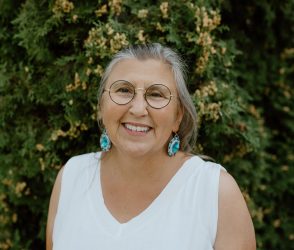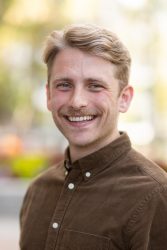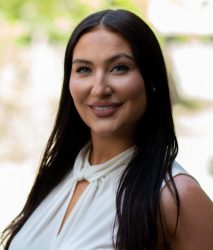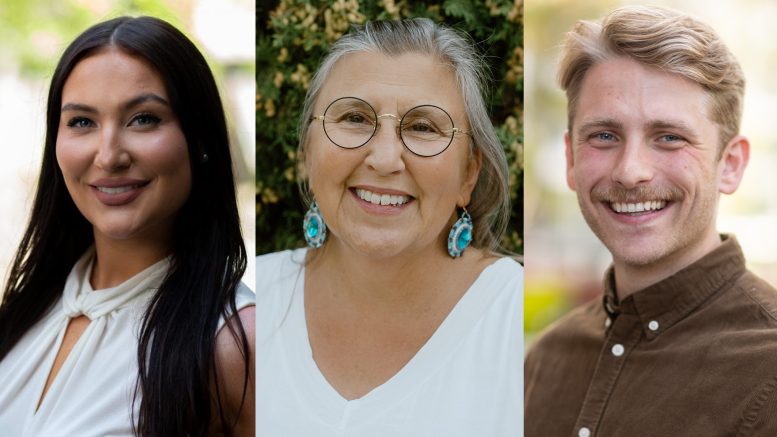Three PhD students, Pahan PteSanWin (department of Indigenous studies), Dallas Murphy (department of psychology) and Sydney Levasseur-Puhach (department of psychology) have been awarded the prestigious Vanier Canada graduate scholarship to support their research in areas of community health and the humanities.
The Vanier Canada graduate scholarship is a program that helps Canadian universities attract top-class PhD students within Canada and around the globe.
This scholarship helps doctoral students who demonstrate both leadership skills and a high standard of scholarly achievement in graduate studies in the social sciences and humanities, natural sciences, engineering and health.
Mario Pinto, the university’s vice-president (research and international), told UM Today that “the recognition of these three UM graduate students as prestigious Vanier scholars is a testament to their research leadership.”
He continued, “UM is proud to provide an excellent training ground with talented faculty and mentors. This award is a sound investment in the next generation of scholars and the Canadian workforce of tomorrow.”
Over the next three years, the selected Vanier scholars will each receive $50,000 per year toward their research.
Pahan PteSanWin, supported by the Social Sciences and Humanities Research council 
PteSanWin’s research is titled Beyond Repatriation of Indigenous Ancestral Remains and Cultural Heritage: Rematriation and Reparations in the Canadian Context.
“In June of this year, the University of Manitoba offered a public apology to Indigenous people for the university’s participation in a specific kind of colonial violence, and that colonial violence is the accepting the control and stewardship of Indigenous ancestral remains,” said PteSanWin.
“And the other thing that happened on that day was the university also adopted a policy, a university-wide policy that, going forward, no Indigenous ancestral remains are ever to be accepted by the university again and that the university made a commitment to return these — we call them ancestors, the remains, we call them ancestors — return the ancestors to the descendant communities.”
PteSanWin continued, “my research flows from what happened there. Because the university will repatriate the ancestors to descendant communities. But my research […] builds on the assumption that merely returning ancestors, and other things too, not only remains, but also, cultural heritage, maybe sacred items or a song or even a photo that was taken from Indigenous community without consent. Those have to be returned too.”
PteSanWin said that her research is building on that return is very important. However, it is just the beginning, and merely returning the item in an act of repatriation is not enough.
She continued by saying, “my research wants to look at something called rematriation, which is much more comprehensive than just returning an item. It’s looking at all the other things that need to be returned and restored, like sovereignty and right relationships and other kinds of decolonization that needs to happen.
“So, looking at it more generally across Canada, what kind of reparations would be appropriate? And so my research wants to look at how do we support and encourage and challenge colonial institutions to […] move toward being willing to repatriate and then take the next steps, which is rematriation, do more and then reparations, which is how do you atone for the harm that you’ve caused through this kind of colonial violence. And that’s what I want to make a difference.”
PteSanWin said, “that’s what I want to do, is to look at how do we support colonial institutions to move along this continuum from one side to the other so that when we get to that place where the rematriation has happened and the reparations have happened, then Indigenous community can thrive in a more robust way than what is happening today.”
Dallas Murphy, supported by the Canadian Institutes of Health Research 
Murphy’s research project is about developing mental health resources that are more accessible to a broader population so people who might have a tougher time getting access to it. “I think it’s important because Manitoba in particular has the lowest number of licensed psychologists per capita,” said Murphy
The Vanier scholar continued, “the government just funded an expansion of the clinical health psychology program here, which means there’s a few more psychologists now. But as of a couple of years ago, for every 100,000 people in Manitoba, there were only 17 psychologists. And about one third of every Manitoban at some point in their life will meet the criteria for a mental health disorder, which if you do the math, means there’s not enough professionals to treat everyone who needs the help.”
Murphy discussed how the number of professionals to treat individuals with mental health issues is limited, and his research looks at how more people can get the necessary treatment at a low-cost in an efficient manner.
Sydney Levasseur-Puhach, supported by the Social Sciences and Humanities Research council 
Levasseur-Puhach is collaborating with Indigenous women to research how programs and services can better meet their maternal mental health needs.
In a news release by UM Today, she stated that “I want to showcase that there are so many gifts that Indigenous women possess that should be honoured within mental health systems.
“I hope to disrupt systems and create safer spaces for women and families to be able to live their lives in alignment with personal, familial and cultural values. I believe that providing the care that Indigenous women deserve will serve as a means of supporting intergenerational family thriving.”
These Vanier scholars were selected for their academic excellence, research potential and leadership, and they can now count themselves as Canada’s top graduates.
“UM’s Vanier scholars have been recognized for their excellence and this funding allows them to continue their journey to transform our world through their research, leadership and desire to make a difference,” said Kelley Main, dean of the faculty of graduate studies, to UM Today. “Congratulations to all of them on this outstanding achievement.”


